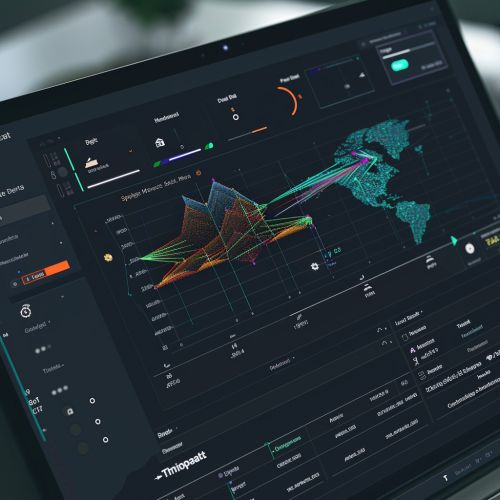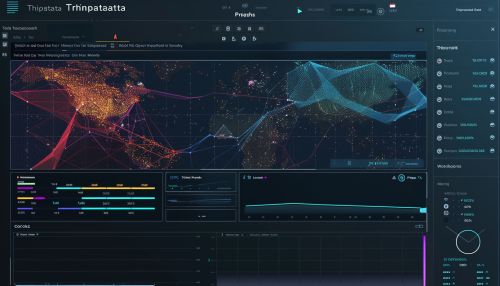Trifacta: Difference between revisions
(Created page with "== Overview == Trifacta is a data wrangling software platform designed to work with a variety of data sources and types. The platform provides tools for data exploration, transformation, and cleaning, enabling users to transform raw data into clean and structured formats for analysis. Trifacta's technology is based on a combination of machine learning, statistical analysis, and visualization techniques, which help to automate the process of data preparation. <div cl...") |
No edit summary |
||
| Line 2: | Line 2: | ||
[[Trifacta]] is a data wrangling software platform designed to work with a variety of data sources and types. The platform provides tools for data exploration, transformation, and cleaning, enabling users to transform raw data into clean and structured formats for analysis. Trifacta's technology is based on a combination of machine learning, statistical analysis, and visualization techniques, which help to automate the process of data preparation. | [[Trifacta]] is a data wrangling software platform designed to work with a variety of data sources and types. The platform provides tools for data exploration, transformation, and cleaning, enabling users to transform raw data into clean and structured formats for analysis. Trifacta's technology is based on a combination of machine learning, statistical analysis, and visualization techniques, which help to automate the process of data preparation. | ||
[[Image:Detail-77841.jpg|thumb|center|A screenshot of the Trifacta interface showing a dataset being transformed.|class=only_on_mobile]] | |||
[[Image:Detail-77842.jpg|thumb|center|A screenshot of the Trifacta interface showing a dataset being transformed.|class=only_on_desktop]] | |||
== History == | == History == | ||
Latest revision as of 00:28, 8 May 2024
Overview
Trifacta is a data wrangling software platform designed to work with a variety of data sources and types. The platform provides tools for data exploration, transformation, and cleaning, enabling users to transform raw data into clean and structured formats for analysis. Trifacta's technology is based on a combination of machine learning, statistical analysis, and visualization techniques, which help to automate the process of data preparation.


History
Trifacta was founded in 2012 by Joe Hellerstein, Jeffrey Heer, and Sean Kandel. The trio aimed to address the challenges associated with data preparation, which they identified as a major bottleneck in the data analysis process. The company's initial product, Trifacta Wrangler, was launched in 2015 and focused on providing an intuitive interface for data cleaning and transformation.
Technology
Trifacta's technology is built on three main components: data profiling, predictive transformation, and intelligent execution.
Data Profiling
Data profiling in Trifacta involves the use of visual representations to explore and understand the structure, quality, and distribution of data. This allows users to quickly identify patterns, outliers, and anomalies in their datasets.
Predictive Transformation
Predictive transformation is a feature that uses machine learning algorithms to suggest transformations based on the user's interactions with the data. As the user explores and manipulates the data, Trifacta learns from these actions and provides recommendations for further transformations.
Intelligent Execution
Intelligent execution refers to Trifacta's ability to optimize the execution of data transformations based on the specifics of the underlying data infrastructure. This includes considerations such as the size of the data, the capabilities of the hardware, and the optimal use of available resources.
Applications
Trifacta is used in a variety of industries and applications, including data science, business intelligence, and big data analytics. Its data wrangling capabilities are particularly useful in contexts where large volumes of raw data need to be cleaned and transformed into a format suitable for analysis.
Data Science
In data science, Trifacta is used to prepare and clean data for analysis. This includes tasks such as removing outliers, handling missing values, and transforming variables. The platform's predictive transformation feature is particularly useful in this context, as it can automate many of the repetitive tasks associated with data cleaning.
Business Intelligence
In business intelligence, Trifacta is used to transform raw business data into a format that can be easily analyzed and visualized. This includes tasks such as aggregating data, creating new variables, and reshaping datasets. The platform's data profiling feature is particularly useful in this context, as it allows users to quickly understand the structure and quality of their data.
Big Data Analytics
In big data analytics, Trifacta is used to handle the challenges associated with working with large and complex datasets. The platform's intelligent execution feature is particularly useful in this context, as it can optimize the execution of data transformations to ensure efficient use of resources.
